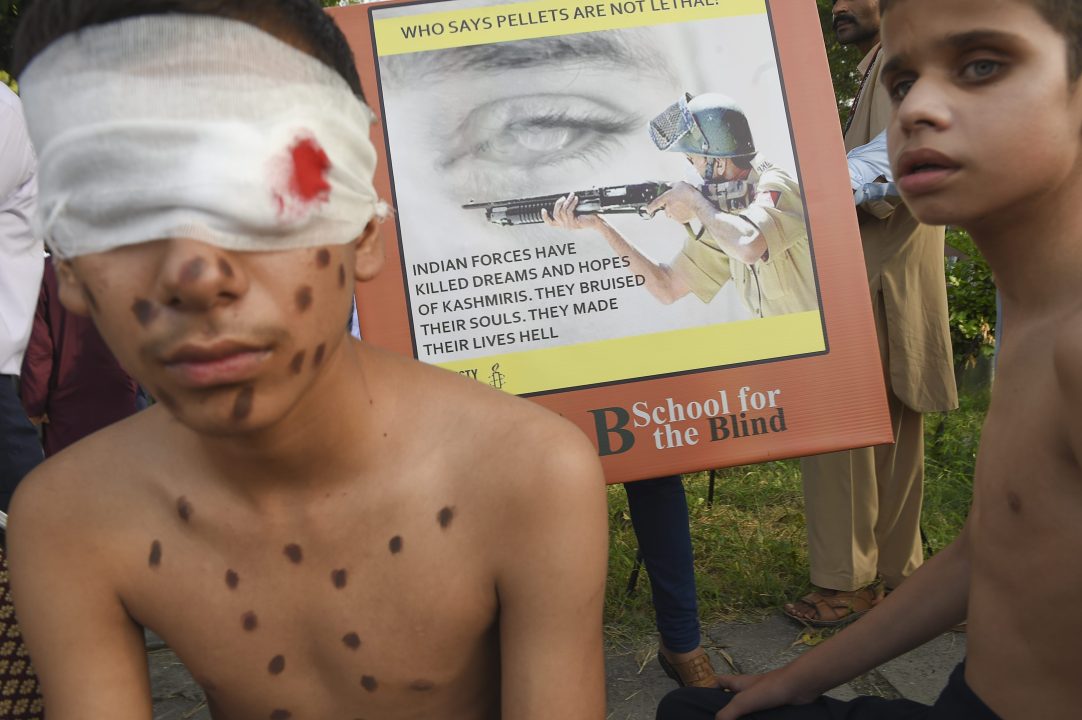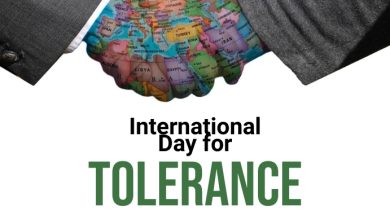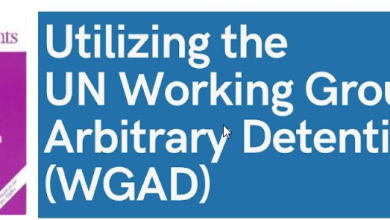 War crimes and acts of transnational terrorism have caused gross violation of human rights in Palestine and Kashmir. If the situation in Palestine remains unattended, it can potentially spread conflict in other regions by non-state actors who can leverage global networks to spread the anti-human armed conflict in the rest of areas where violence may erupt so quickly to endanger peace. Moreover, continuous war in Gaza will further upset the power dynamics in the Middle East where US influence is declining due to its unconditional support to Israel.
War crimes and acts of transnational terrorism have caused gross violation of human rights in Palestine and Kashmir. If the situation in Palestine remains unattended, it can potentially spread conflict in other regions by non-state actors who can leverage global networks to spread the anti-human armed conflict in the rest of areas where violence may erupt so quickly to endanger peace. Moreover, continuous war in Gaza will further upset the power dynamics in the Middle East where US influence is declining due to its unconditional support to Israel.
The hopes for peace and regional security are diminishing because the issues of Kashmir and Palestine have remained unresolved despite the UN resolutions. Israel has continuously dishonoured the commitments ensured under Balfour Declaration and UN resolutions by disallowing Palestinians to form the viable state. India too does not abide by UN resolutions and refuses to accept the right to self-determination of Kashmiris and rejects any possibility of mediation by a neutral party. The UN Security Council has remained ineffective on deciding the matter by holding a plebiscite under its auspices. Both issues are ethnic, territorial, historical and ideological in nature. India is applying new techniques of warfare and lawfare to bring a demographic change by altering constitutional position of Kashmir. Israel is also pushing natives to leave their land by isolating Hamas.
Thus, both US strategic partners – Israel and India – are engaged in campaigning against their target populations using similar strategies stemming from their strong nexus which seems unchallenged by ruling-elites of Muslim world who are loyal to West instead of being able to demonstrate commitment to their own people by taking tangible actions to muzzle Indo, Israeli leadership. The forced occupation of Israel in Palestine and Indian atrocities in Kashmir are being conducted consistently through brutal killing of thousands of people including children and a range of war crimes including torture, inhuman handling of prisoners of war, captured detainees and displacement of prisoners without their consent in sheer violation of international humanitarian law. These barbaric crimes are systematically organised in both Palestine and Kashmir as a serious breach of international humanitarian law. Further attacks on civilians and medical aid workers and volunteers during armed conflict are examples of blatant criminality against humanity.
Israel has been violating the international law by monstrously attacking hospitals, monuments and religious and cultural heritage sites of Palestine since the Hamas reaction of October 7, 2023. Both India and Israel have used explosive weapons prohibited under international law. In Kashmir, India has been involved in extra-judicial killings, custodial tortures, arbitrary detentions, violence against civilians and enforced disappearance of people causing distress to their families. Indian security forces have also used pellet guns, causing injuries and blindness to innocent civilian populations. Further, putting serious restrictions on freedom of expression and assembly of Kashmiris and prolonged curfews, lockdowns enforced by Indians forces are wrongful acts of violating international law.
The prosecution of war crimes can occur in International Criminal Court (ICC) which must take up these violations and protect the human rights codified in the Geneva Conventions. Palestine has acceded to the Rome Statute and the ICC has jurisdiction to investigate and prosecute the individuals involved in war crimes against humanity. There are several laws which protect the human dignity against the plight of humans in war and peace. For instance, convention on prevention of genocide was adopted by the UN in 1948 as punishable crime. In 1965, the UN also adopted the ICERD convention to combat all forms of racial discrimination and promote racial equality. In 1984, Convention Against Torture (CAT) was adopted to prohibit torture and cruel treatment of humans. During the year 2002, protocol was made to develop a mechanism for preventing torture and inhuman acts. For protection of all persons from enforced disappearances, an international convention was adopted in 2006 to prevent punishable crime of enforced disappearances in various forms including arrest, detention and abduction of individuals by state or with its consent. The UN Security Council resolution No 1674(2006) can also be used as an effective law against the crimes of genocide, torture and violence.
Kashmir and Palestine are under situations of occupation; thus, International Humanitarian Law (IHL) and International Human Rights Law (IHRL) are applicable to deal with different situations of extra-judicial executions under IHRL as a crime under Article 7 of the Rome Statute and willful killings under IHL as a serious violation of Fourth Geneva Convention and it is codified as war crime by the Rome Statute of International Criminal Court (ICC).
However, the performance of the global institutions in implementing IHL and IHRL is hampered by big power chauvinism. The big powers are involved in global decision-making which shape the world order. Nevertheless, they are reluctant to deter aggression and are unwilling to mediate brutal conflicts if their geopolitical, military and diplomatic interests are not served. They control global politics by taking military actions, selling arms, triggering financial crisis and destabilising regions to create their own networks of influence by forming alliances and counter-alliances. This has led to erosion of UN authority and credibility.
The UN Security Council can impose economic and diplomatic sanctions on belligerent states which endanger peace and violate international law. Further, it has power to authorise the use of force against the aggressive parties in the escalated armed conflict in Gaza. However, unilateral and undemocratic approach of casting veto on the Palestine situation has paralysed the Security Council and possibility of peace has received a serious setback. The international community must take efforts to democratise the Security Council and ensure implementation of Article 6 of International Covenant on Civil and Political Rights which recognises that “every human being has the right to life”.








